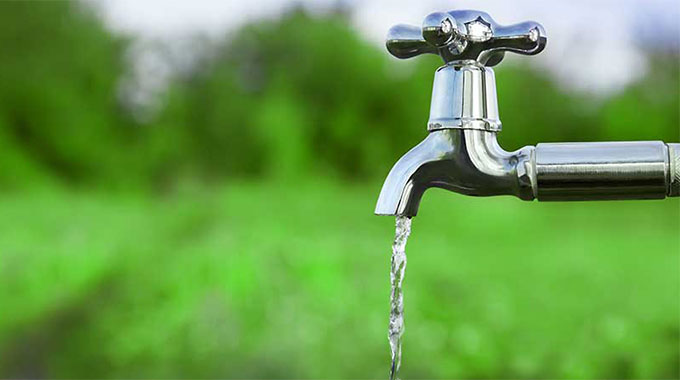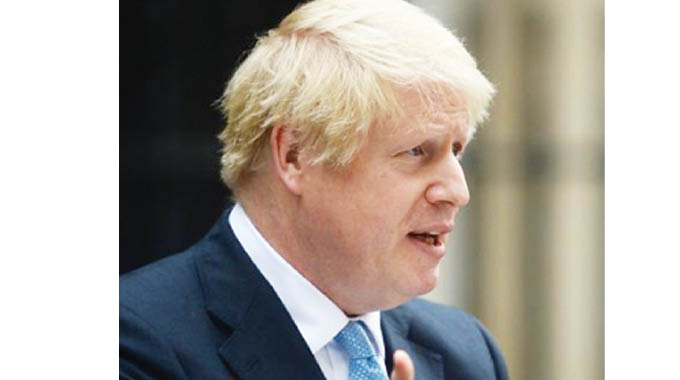COMMENT: Bulawayo residents must use water sparingly

The next eight months are likely to be extremely difficult for Bulawayo after the city’s water supply dams got only a month’s supply in new inflows during the just-ended rainy season.
For many months, residents in the city have been going for four days without running water as the local authority attempts to spread around the little available water. From four days, the water shedding period has been or will soon be further extended to five days.
This follows the decommissioning of two dams, Upper Ncema and Umzingwane, sometime last year and the continuing depletion of water in the remaining dams.
The worst of the impending crisis would be felt in suburbs on higher ground – especially Pumula South, Emganwini and Magwegwe – which, according to a report by our sister paper, Sunday News yesterday, would be totally without running water until the next rainy season, expected in November. With their taps dry, residents would depend on council-provided water bowsers and boreholes.
Bulawayo City Council spokesperson, Mrs Nesisa Mpofu said total inflows for the season into the city’s dams amounted to 12 220 000 cubic metres which is equivalent to just one month’s supply. She also decried the increase in water use since Monday last week.
“The current average daily consumption after the declaration of the lockdown has been 126 megalitres a day,” she told Sunday News.
“This daily average is above the raw water availability of 94 megalitres a day. The net effect of the high consumption is that the high lying areas will not have water until the next rainy season and will be assisted by water bowsers and available boreholes.”
Official figures indicate that the city’s six supply dams have a carrying capacity of 414 627 700 cubic metres of water. Mtshabezi which has a capacity of 51 996 000 cubic metres still has the highest levels at 56,7 percent full, Inyankuni, which has a carrying capacity of 80 781 000 cubic metres is 50,3 percent full and Insiza Mayfair, with a carrying capacity of 173 491 000 cubic metres is 35,1 percent full.
Lower Ncema which has a carrying capacity of 18 237 700 cubic metres is pegged at 12, 7 percent full, Umzingwane with a carrying capacity of 44 663 500 cubic metres is 3, 03 percent full while Upper Ncema which has a carrying capacity of 45 458 500 cubic metres is two percent full.
These statistics indicate that, unless rains fall in between, the water supply situation up to the rainy season will worsen, perhaps to a degree unseen yet in the city.
This means residents must brace themselves for that. They must use water sparingly. On this score, we are very disappointed by the figures, as released by Mrs Mpofu at the weekend, that following the lockdown that started on Monday last week, water usage has actually shot up by 32 megalitres a day. As almost everyone in the city, like elsewhere across the country, is bound to be at home due to the lockdown, residents are finding more use for water. It is possible that some of it is actually being wasted. This is not how it should be. We still have two more weeks of the lockdown, with a possibility that it can be extended depending on how the Covid-19 challenge unfolds. If the water usage continues to grow over the next two weeks as it did in the first week of the lockdown, the city would be in for a far greater crisis.
We, thus, call upon residents to conserve water, bearing in mind that the city’s supply dams are running low. In our view, that is the best way through which the city can reduce overuse of the precious commodity – residents taking it upon themselves to understand the challenges the city is facing in terms of water supply and act responsibly.
If moral suasion fails, we know that council has powers to impose penalties on residents who use water beyond their allocated amounts. It is time to come down more heavily on those who continue ignoring the limits as prescribed by council. Such residents must feel the impact of the penalties where it hurts the most – in their pockets.
The recent application by Bulawayo City Council to the Government for the city to be declared a disaster zone makes a lot of sense when one considers the traditional water scarcity in the city and peers into the future to get an idea how that scarcity could deepen over the next eight months.
We support council’s application and urge the powers-that-be to make the declaration for Bulawayo is facing an extra-ordinary challenge which can only be resolved if extra-ordinary steps are taken. Such a declaration will pave way for development partners to get involved in a much bigger way so that the water crisis is addressed most sustainably.











Comments